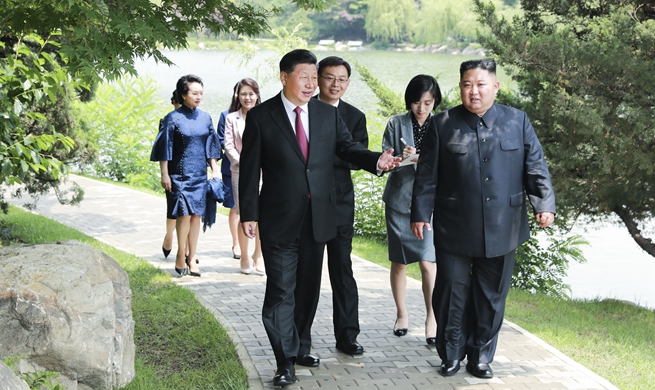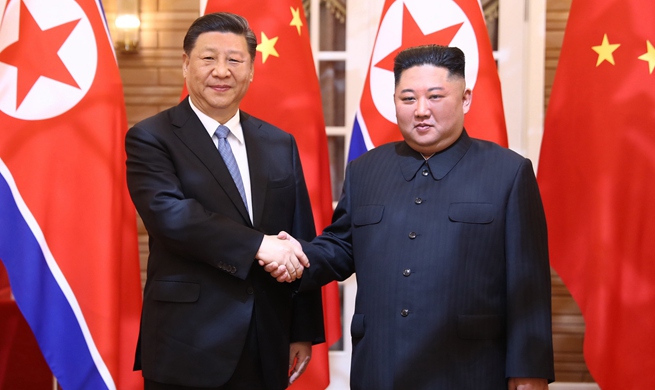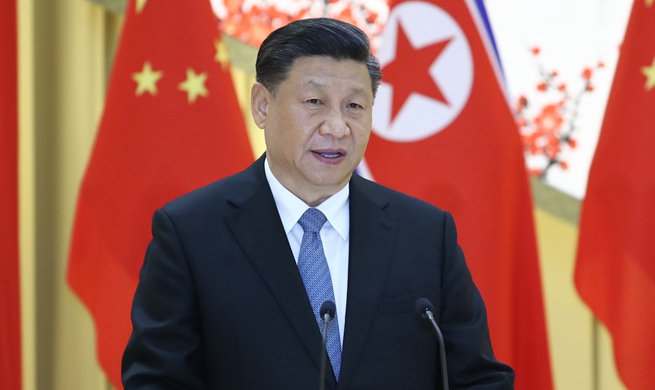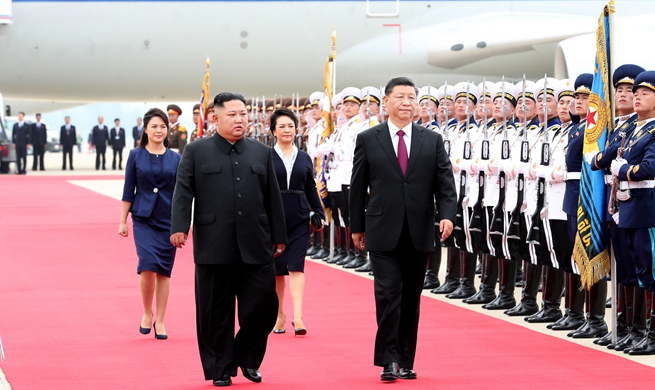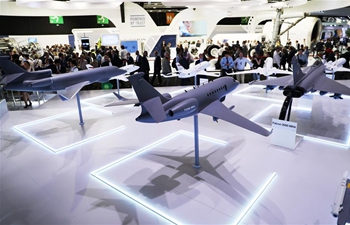TRIPOLI, June 22 (Xinhua) -- The Libyan capital Tripoli, home to nearly 3 million people, is witnessing power blackouts which last as long as 12 hours every day, as temperature gets higher and the demand for power increases.
This growing power shortage in Tripoli comes with the armed conflict between the east-based army and the UN-backed government which has lasted more than three months, causing the displacement of tens of thousands of civilians.
Khairi Abdullah, a resident of Tripoli, said the lack of power has affected his dairy shop which depends on electricity.
"Since the Eid (about three weeks ago) and with the high temperature, my business has been affected. I cannot keep large amounts of dairy products and dates in my shop because I fear I could lose them because of power blackouts," Abdullah told Xinhua.
"My business depends on use of coolers and refrigerators that need stable electricity. Therefore, I seek an alternative to address this issue that is getting worse each year," he said.
The alternative is to buy a medium-sized power generator worth more than 2,000 U.S. dollars, which is equivalent to his entire business capital, Abdullah explained.
Many Libyan cities, particularly the capital Tripoli, are suffering power blackouts with a deficit of almost 2,000 megawatts daily. The current power production is no more than 5.5 million megawatts every day.
Years of armed conflicts and insecurity forced foreign companies responsible for the construction of power projects to abandon their projects, causing deficit in the public power network since the former regime of Muammar Gaddafi was toppled in 2011.
Mohamed al-Mizughi, a university student, said frequent power blackouts and the ongoing fighting in Tripoli make life very difficult.
"Our life became difficult. Schools and universities are closed because of the war. I am seriously considering leaving Libya and emigrating to Europe, even illegally," al-Mizughi told Xinhua.
Mohamed al-Tokri, spokesman of the state-owned General Electricity Company, said there are many reasons for the instability of the power network, mainly the ongoing fighting in Tripoli.
"The ongoing war completely destroyed the power transport and transformer circuits. The maintenance and rehabilitation process will take a long time. Let's not forget more destruction will happen to the power network every day as the war continues," al-Tokri told Xinhua.
The army has been leading a military campaign since early April to take over Tripoli from the UN-backed government.
According to the World Health Organization, the fighting has so far killed 691 people and injured 4,012 others.
The army is allied with the east-based government, as the North African nation is politically divided between eastern and western governments.






